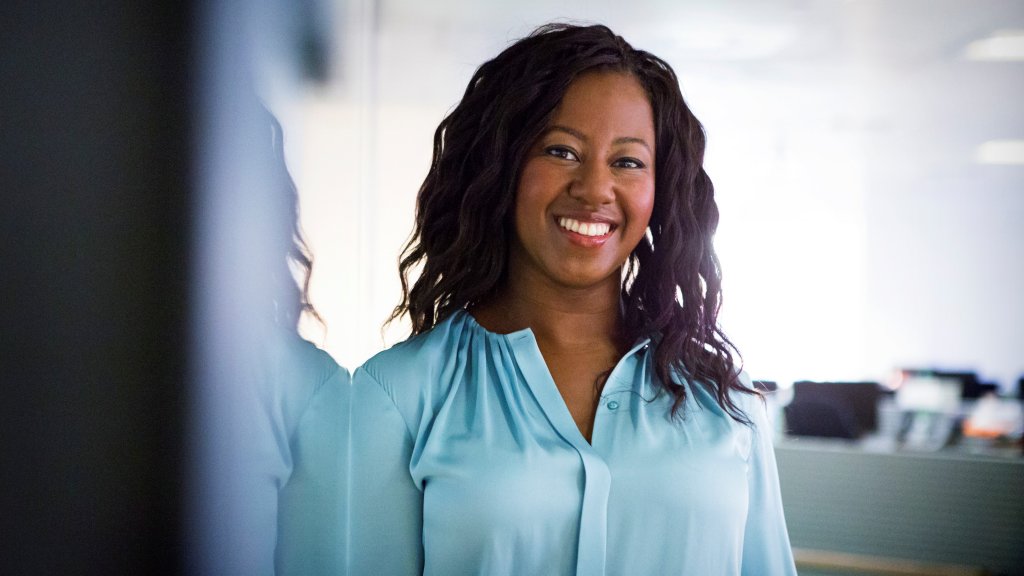Karlene Agard

Project management consultant Karlene Agard traces her aptitude for the profession back to her roots as the ‘Why Bird’ – asking questions, she says, is vital in understanding the parameters and purpose of projects. Below, she also explains why marketing her skills and building a network were two of her biggest career challenges.
What first prompted you to move into project management?
I was at Network Rail and I saw an opportunity to work in change project management. It seemed like a fantastic opportunity to work with a wide range of people and learn more about the nature of the industry.
It also seemed like an excellent challenge. I moved into megaprojects through my next position as a Risk and Value Analyst for the major projects division because I wanted the chance to do more analytical work and work on tangible infrastructure projects.
Take us through your career do date, who have you worked for?
After graduation, I worked with Network Rail and I progressed in three roles there: safety reporting, then change project management before I moved on to working as a Risk and Value Analyst in the Infrastructure Projects division.
I found my passion in the last role which afforded me the opportunity to work with some of the largest and most challenging projects in the portfolio including Crossrail 2 and Thameslink. I then moved onto Transport for London where I worked as a Risk Manager.
I had the opportunity to do a secondment in the UK House of Commons on the International Trade Select Committee, which was completely different to everything that I had done previously. It seemed like a fascinating opportunity to learn more about a completely different sector.
After that I founded my own business, ARAVUN, where I returned to the work I most enjoy, using risk and value management to start megaprojects well.
What are you up to right now?
As the Senior Risk and Value Consultant at ARAVUN, I work with project leaders to help them started megaprojects for success. This entails running workshops and conducting analysis to help project leaders get clear on the direction for megaprojects and how they how they can achieve the best out of the resources that they have.
I also speak internationally on how to use risk and value management to start megaprojects, as well as overcoming fear and building your career. I write for publications such as Forbes and have a video series with bitesize interviews for megaproject leaders.
I’m the practitioner liaison for research that Masters students at Leeds university are doing into value management. That affords me the opportunity to connect the Masters students with project management practitioners to see how effectively value management is being used currently. I also Co-Chair the Benefits and Value group within the Association for Project Management.
What makes your work fulfilling and fun?
I really enjoy the challenge of helping project teams to get clear on what problem they’re trying to solve with a megaproject. Project professionals tend to have a bias to action but it’s crucial to make sure that action is spent on effectively solving the problem at hand, rather than just doing what’s always been done.
There is often a better way to achieve their goal. It’s far cheaper and quicker to spend time clarifying that at the beginning than trying to fix it when it’s going wrong!
What are your key strengths and how have you used these?
When I was a child, my family used to call me the ‘Why Bird’ because I was as inquisitive as Big Bird from Sesame Street. That’s really connected to the work that I do now because at the start of a project, value management is about understanding and defining the purpose of the project.
The ability to question both why you’re doing something and why you’re doing it in that way is crucial to helping set the direction for megaprojects.
What aspects of the role pose the greatest challenge?
When I was considering starting ARAVUN, I was very comfortable in corporate and government companies and I had a lot to learn to become an effective entrepreneur. I got a fantastic mentor, Nathaniel Peat, to train me in how to run a business.
I had to go beyond my comfort zone by doing more public speaking, sharing my business with potential clients and building a platform on LinkedIn. Since I started, I’ve gone from being nervous to present to 80 people to being excited to present to audiences of over 300 people.
What training have you received and how has this helped you in your career?
Over the years I’ve realise the importance of investing both time and money in my personal development and how that has really translated to me being able to do more interesting or more rewarding work and being given more opportunities. I have recently completed the Institute of Risk Management’s international diploma in Enterprise Risk Management.
Prior to that I have had training in project management and value management. I think the foundation of my career lies in my ability for analysis. I was always strong in maths and physics for instance but I’ve really worked on developing my softer skills, in particular the ability to communicate effectively and develop a strong network.
What characteristics and skills do you think make a great project manager?
For megaprojects in particular, I think that is crucial that you have the traits of what Edward Merrow and Neeraj Nandurdikar call ‘a fox’. Foxiness is the capability to not just understand one thing in detail but to take a really broad perspective of what’s going on because for megaprojects, there are so many different considerations that you need to take into account.
You also need to have the capacity to lead and not merely manage. Technology will take over some technical areas of project management but the ability to lead and inspire others is distinctly human.
What are the biggest mistakes have you made and how did you correct them?
I was depressed when I studied Engineering Business Management at the University of Warwick. I did not seek help and performed poorly there. It was very disheartening and I could not get the type of job I wanted at first but I worked hard to progress quickly in my career.
I have since managed to build a career that I’m proud of through hard work, seizing and making opportunities and effective networking.
Which project are you most proud of?
There are constraints around what I can share but I was particularly proud of my work with a group of Project Managers in Network Rail. They were leading a portfolio of projects in excess of $1billion and I worked with them until they became adept at identifying the key value drivers for these projects and the risks Network Rail would take on by delivering the project.
It was fantastic so see their skills increase and go from leading workshops to acting as a specialist support as they delivered some risk and value work. This contributed to me receiving some awards and award recognition.
Do you have a role model?
I don’t have one role model but I admire a range of people for their excellence in specific areas. I’m inspired by Michelle Obama for her persistence, determination and grace. My business mentor, Nathaniel Peat, is extremely driven and has a passion to improve the world.
There are a range of experts I admire for their knowledge and have learnt a great deal from within risk and value management and Bent Flyvbjerg is a prolific expert on megaprojects.
Does being a good project manager help you in other aspects of your life?
Those skills have definitely helped me elsewhere. I helped a friend who was overwhelmed with starting a business to establish a clear set of priorities and make a robust plan that took into account risks. She was a lot clearer on how she could manage her time and energy to achieve her goals.
How would you like your career to progress from here?
I would like to do more international work and cover a wider range of sectors. When megaprojects are being started, I want to be consulted to help direct them to success from the start. I’d also like to do more speaking engagements.
What’s your best advice for people hoping to move up the career ladder?
Make bold moves! Don’t be afraid to fail but plan for failure. It is actually an inevitable part of your journey and if you’re not failing then it probably means you’re not really trying anything particularly challenging.
Invest in yourself! Invest your time and invest your money in developing ‘soft’ and technical skills. If your company is unwilling to invest in you, then don’t be afraid to do it for yourself because your skills will enrich what you can offer. Ultimately, you have agency over your career.
Develop a strong network. If you have a good network of people who know what you excel at and like you, they will share opportunities with you. My network has proven invaluable.




